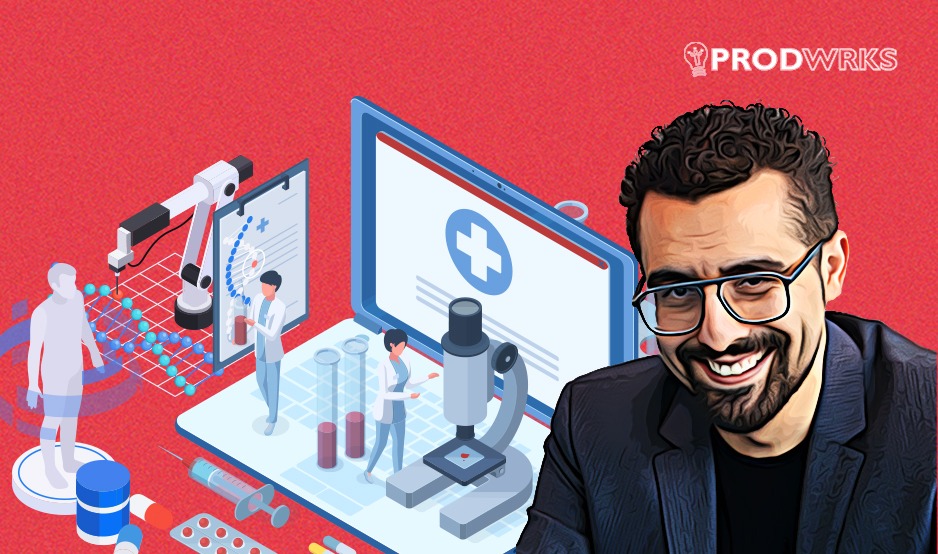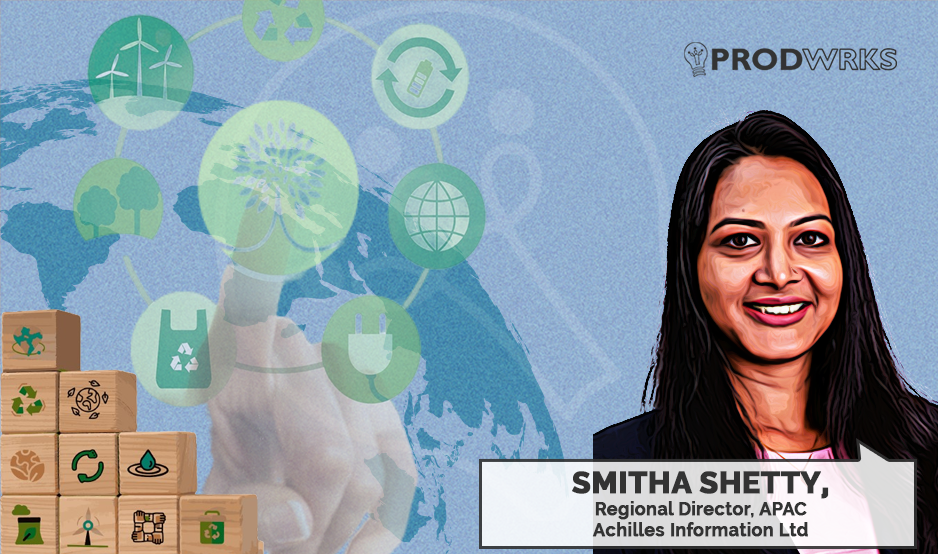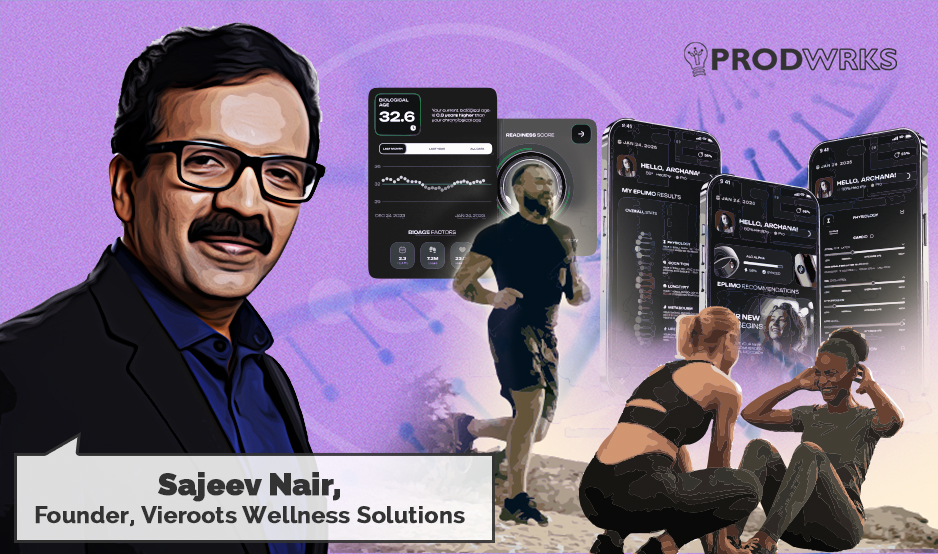
Founded in 1668, Merck remarkably embodies the spirit of a startup thriving within a centuries-old institution. Their journey and growth are a testament to the enduring spirit of adaptation and transformation with time. In today’s AI era where data drives innovation, Walid Mehanna, Merck’s Chief Data and AI Officer, pilots this historic ship across uncharted AI waters.
Walid Mehanna leads the charge in crafting an enterprise-wide data and AI strategy, cultivating a data-driven culture, and guiding innovation at Merck Group. His vast experience in data architecture, strategy, and governance has propelled Merck to pioneer groundbreaking projects, from AI-powered drug discovery to quality control.
In an exclusive interview with ProdWrks, he shares insights into Merck’s data-driven initiatives, the introduction of GenAI, the importance of a robust digital ethics framework, and the evolving landscape of data culture in large enterprises.
Join us in this conversation with Walid Mehanna, where we explore how the oldest operating pharma company is showing the rest of the world how to stay at the forefront of technology and prepare for the next century.
(This interview has been edited for clarity and length.)
Q. Hello, Walid. Can you give us a few examples and use cases to show how Merck harnesses data analytics, machine learning, and artificial intelligence?
Walid: We rely on AI in image processing for quality control and analytics to better detect defects and deviations. We heavily use AI in text processing. We analyze scientific literature and patents in the R&D field, classify our internal information for regulatory processes and classify invoices in the finance department. In the research department, AI and machine learning are used, for instance, to predict the properties of new materials.
Beyond internal use cases of AI to improve our processes and products, we also utilise machine learning and artificial intelligence externally in the products we offer in the market. For instance, in the life science area, we offer AIDDISON, an AI-driven software for drug discovery. Additionally, we offer Synthia, an AI-assisted tool for retrosynthesis. The tool accelerates research by predicting synthesis pathways.
Q. How does Merck manage data and optimize data pipelines while ensuring accuracy and compliance which are critical in the pharmaceutical sector?
Walid: This represents one of our current strategic initiatives termed ‘Data Analytics Accelerators’ at Merck. Our objective is to synchronize our data integration and data pipelines, a common challenge in large organizations dealing with a multitude of batch, delta, and streaming pipelines spread over several worldwide systems, resulting in a complicated network of data flows. Our primary focus is on optimizing what we call the ‘Merck Data Autobahn’.Autobahn is the German term for highway.
We want to provide more direct routes, maintain good data quality, and eliminate data redundancy. Throughout my career, I’ve learned that there is no such thing as a one-size-fits-all solution as a corporate data warehouse functioning as the ultimate source of truth. Instead, we anticipate the presence of multiple data storages and are exploring optimization possibilities, potentially leaning towards a data mesh or data fabric approach.
However, this is a complex and subtle job – no single device can be acquired to miraculously cure all problems. It necessitates a solid foundation, including an awareness of the data quantities traveling via multiple pipelines, as well as their associated costs, speeds, and volumes. With this knowledge, we can streamline our processes so that they fit the purpose, and ensure they are efficient and cost-effective.
Q. Merck had recently launched myGPT to leverage the power of Generative AI in its processes. What has been the impact?
Walid: Our implementation of myGPT has been significantly influenced by the widespread success of ChatGPT. For us, noticing a growing interest in exploring this technology within our business was a watershed moment. Concurrently, our senior management began receiving more inquiries about the potential impact on our business. As a result, I am convinced that myGPT and comparable large language models (LLMs) are versatile technologies that can be applied across a wide range of disciplines in our application environment.
Merck’s myGPT has emerged as an ideal instrument for promoting general AI literacy. It acts as a general-purpose technology, allowing colleagues worldwide to safely and securely use GPT technologies in a compliant environment.
Q. Did you face any challenges while implementing myGPT?
Walid: Navigating the original Open AI API service proved somewhat challenging for a large organization like Merck. However, the procedure became substantially more simplified when Microsoft Azure integrated Open AI API access into their cognitive services. The scene is rapidly changing, particularly with the introduction of open-source models like LLaMA and a variety of execution environments, including Hugging Face, AWS Bedrock, and Palantir AIP. The variety of possibilities is growing.
Finding technological backends that met our criteria was a major challenge in the early stages of constructing myGPT. However, this picture has changed considerably in the last 3-4 months, and progress is both continuous and quick. Aside from that, the major goal of myGPT at Merck was to create a safe, secure, and compliant environment for our employees. This was pretty straightforward and just needed a good alignment between cybersecurity, data privacy, the workers’ council, and our development teams.
Q. Has Merck set up GenAI guardrails to ensure that the AI-generated content is accurate, compliant, and ethical?
Walid: We are actively engaged in a project focused on enhancing our AI, particularly tailoring it to our specific needs. However, it’s important to acknowledge that, currently, LLMs have residual risks as they can hallucinate. To mitigate these risks, we are investing significantly in educating and raising awareness among our users. It’s crucial for individuals to upskill and take ownership of AI-generated outcomes.
The most important guardrail is awareness. Our users and employees have the ability to maintain control and understand the nature of generative AI. They recognize that AI is a tool to aid them, but they bear final responsibility for the results generated. If they have uncertainties about the accuracy, compliance, or ethics of the output, they can reach out to our expert network, such as our digital ethics advisory panel, to discuss and seek guidance.
Additionally, we are exploring possibilities to automate some of these processes. Notably, we use content filtering to guarantee that AI-generated content conforms with our company values, particularly in areas such as hate speech prevention.
Q. From your experience implementing LLM in Merck, what advice would you give your peers in other large enterprises who want to incorporate GenAI?
Walid: My suggestion is to prioritize learning early, learning rapidly, learning cost-effectively, and then scale accordingly. This space is evolving quickly, and there’s no one-size-fits-all solution. Many suppliers are integrating these technologies into significant business portfolios, such as Merck’s.
Right now, OpenAI, Anthropic’s Claude, and Meta’s LLaMA are at the forefront. Other notable examples include high-quality models from China and growing European firms. A one-size-fits-all strategy is unlikely, given the early stage of LLMs. Making a simple proposal like selecting XYZ is difficult. It is critical to maintain a broad perspective and make a decision at the most appropriate time while keeping open to different alternatives.
Furthermore, execution environments such as Palantir, Bedrock, and AIP are gaining traction, predicting future consolidation. Currently, the environment is vast, necessitating companies to traverse and experiment in order to find the best fit for their needs.
Q. How are the Code of Digital Ethics (CoDE) and Digital Ethics Advisory Panel (DEAP) shaping the ethical use of technology within Merck?
Walid: Our approach to digital ethics aims to create trust in our digital solutions and offerings, both external and internal. This is done by making critical guidance available to all people in our company who work with data, digital technology, and AI. Individuals must comprehend the underlying beliefs and concepts underpinning this initiative. In particular, when dealing with personal information, patient data, or even innovations in yet unregulated areas, our frameworks guide the employees to determine the best course of action and what to avoid.
Our Code of Digital Ethics (CoDE) defines the principles we need to uphold to ensure responsible handling of data and AI. In complex ethical questions or when our CoDE does not offer clear guidance, we rely on the expertise of our Digital Ethics Advisory Panel. This panel is made up of respected academic experts from Europe and the United States. They can be enlisted to discuss potential ethical quandaries and provide advice and guidance on proper responses. These experts serve as ethical pillars for our organization, aiding us in navigating uncharted territories as an innovative science and technology company. Given our pioneering role in various domains, having such frameworks and external advisory support is critical in ensuring alignment with our company values.
Q. Does Merck's CoDE or DEAP influence product decisions and strategy?
Walid: One of our digital products is Syntropy, which is a data integration and collaboration platform supporting academic medical centres and their industry and governmental partners. We’re dealing with a lot of patient data, and the digital ethics advisory panel has a crucial role to play there. Furthermore, the code is an important instrument for the platform’s product development. The Syntropy product team regularly seeks help from there because they have a lot of pioneering questions in this space where DEAP comes in extremely handy. I believe that this addition to the code of digital ethics would be ideal for entrepreneurs.
Q. How can startups implement a similar AI governance structure like Merck on a smaller scale?
Walid: Our code of Digital Ethics is available on our website and can be used outside of our organization as it serves as a framework so start-ups can leverage it as guidance. Beyond this, we have several materials available giving insights into the operationalization of digital ethics, as well as training and our publications in peer-reviewed journals, which are the foundation of our work.
Q. How do you implement new technologies and foster a culture of innovation within a large organization like Merck?
Walid: Merck, fortunately, has a strong underlying culture of curiosity, which is a big benefit. However, introducing new technology always carries residual risk, particularly in large organizations with complicated systems. I am convinced that the answer is to dissociate people’s professional pathways from specific technologies. Instead, consider yourself as someone assigned by the corporation to identify and implement the best solutions.
It is my obligation, and I encourage others to consider whether the current technology is optimal or whether a better alternative exists. Consider factors such as work, expenditures, and the payback period for an improvement. My goal is to always be conscious that, while ‘better’ is important, ‘good enough’ also holds significant value. We might hold on to outdated technology for too long, not realizing when they are no longer ‘good enough.’ As a result, there should be a willingness to abandon previous technology, realizing that what was right at the time may not be the best fit for the firm moving ahead.



